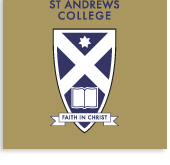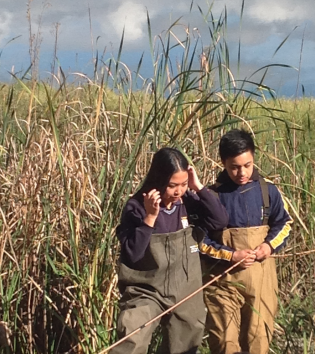 |
Our local environment affects not only us but also all the living things that are found there. Each local environment possesses unique physical, chemical geological and biological features. These features interact and are often connected by the operation of natural cycles. The interactions between organisms and their environments are often complex and not immediately obvious. The study of ecology enables us to understand these interactions. Studying a local ecosystem can give us an insight into how other ecosystems function.
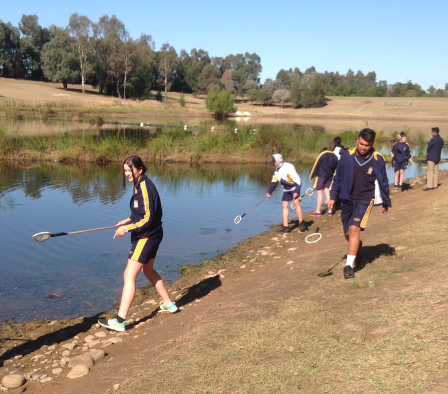 |
Penrith Lakes was the local ecosystem chosen as a field study for the Year 11 Biology and Senior Science students of St Andrews College. The students measured and analysed the biotic and abiotic factors operating at Penrith Lakes to assess the health of the ecosystem.
Abiotic factors tested were temperature, pH, turbidity, slope, light and phosphate. These were carried out using the appropriate instrumentation.
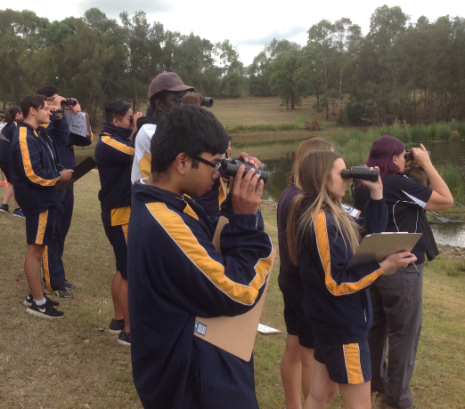 |
Biotic factors measured were the abundance and distribution of birds, macro invertebrates and vegetation. These were carried out by observing and counting the number and species of birds present, dipnetting and transect/quadrat methodology respectively.
When all the data was analysed, the students deemed that the Penrith Lakes ecosystem to be fairly healthy.
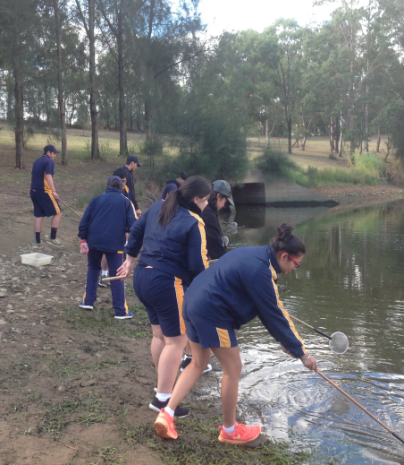 |
- Students made the following comments:
“It was a great experience, the hands-on learning allowed a more effective understanding of ecosystems”
“Enjoyable learning practical lesson.”
“The dipnetting was fun, bird watching was fun and the instructors were very knowledgeable. I learnt a lot overall about the quality of water and healthy ecosystems”
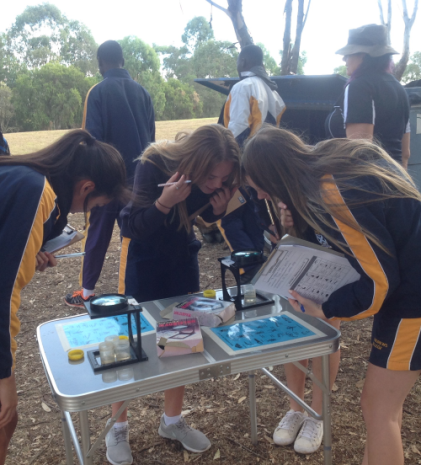 |
The Penrith Lakes Education Officers were impressed with our students’ enthusiasm and engagement with the field studies.
Mrs. Caroline O’Hare
Leader of Learning- Science
